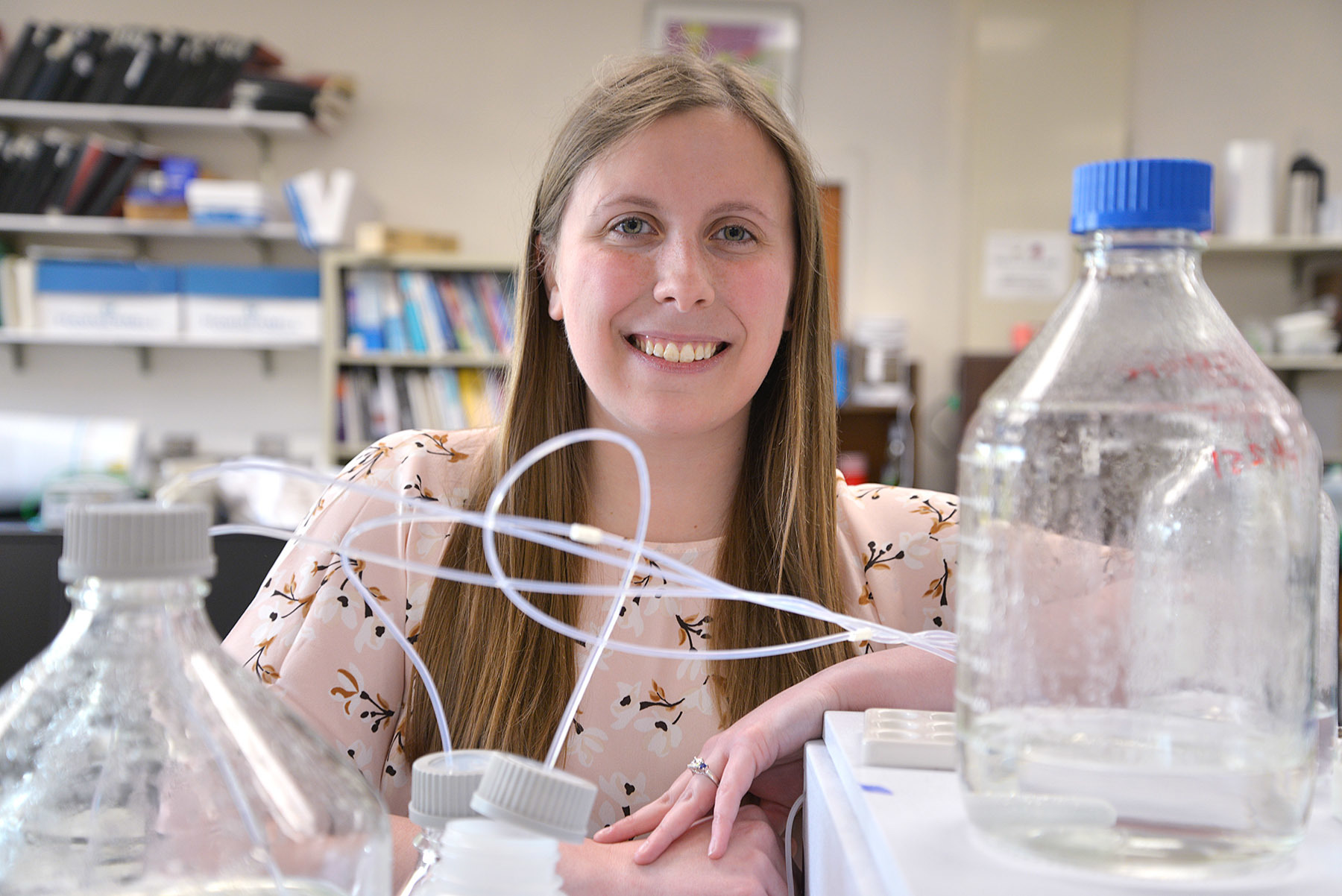“I got the email notification at 11:30 p.m. on Monday night, which was right before I was going to go to sleep,” said Cain, who is from Gloucester. “Reading the congratulations email made me so excited to start my graduate school career because it verified that all of my hard work has paid off. Needless to say, I was unable to go to bed for a while because I was so excited to tell all of my friends and family.”
Since her freshman year at Virginia Commonwealth University, Cain has conducted research in the Department of Chemistry in the College of Humanities and Sciences. Under chemistry professors Maryanne Collinson, Ph.D., and Sarah Rutan, Ph.D., Cain worked on designing improved stationary phases for liquid chromatography.
She presented her research at three international conferences and authored two papers, one of which has been published in the Journal of Chromatography A. The other is currently being revised.
“It has been a joy to work with Caitlin since 2016,” said Rutan, a professor emerita of chemistry. “She [has been] a solid and mature research student and has all the ‘right stuff’ to succeed. I am excited to see where her career will take her. This fellowship is definitely well-deserved.”
Cain, a member of the Honors College, also has been working as a teaching assistant in the Quantitative Analysis and Instrumental Analysis laboratories of Michael Hunnicutt, Ph.D., assistant professor in the Department of Chemistry.
“All of my experiences at VCU helped me earn this award,” Cain said.
Following graduation next month, Cain will go on to attend graduate school at the University of Washington in Seattle. While there, she plans to pursue a doctorate in chemistry.
“My proposed graduate work will focus on advances in multidimensional gas chromatography, which utilizes consecutive separations to enhance the resolution of complex samples, and chemometrics, which uses mathematical models to extract chemical information from the complex data generated,” she said.
After earning her Ph.D. in chemistry, she wants to complete an academic post-doctoral research position and become a research professor at the university level.
Collinson, the John B. Fenn Professor in Chemistry, said Cain has been a pleasure to work with.
"She really loves what she does and is excellent at it," she said. "Her enthusiasm for science is invigorating and it keeps us motivated to keep going even when experiments don't work as expected."
At VCU, Cain was also a recipient of several College of Humanities and Sciences awards, including one from the Baldacci Student Experiential Learning Fund in 2018. The award funded her research on the selectivity of a separation changes in chemically bonded ligands and a presentation of that research at the Pittsburgh Conference & Exposition, the leading annual conference on fundamental analytical chemistry.
The NSF award, the oldest graduate fellowship of its kind, has a history of selecting recipients who achieve high levels of success in their future academic and professional careers. Recipients often become leaders who contribute significantly to both scientific innovation and teaching.
The award provides a three-year annual stipend of $34,000 along with a $12,000 cost of education allowance for tuition and fees, opportunities for international research and professional development, and the freedom to conduct their own research.
“I would like to thank everyone in the VCU Department of Chemistry for their support during my undergraduate career,” Cain said.
